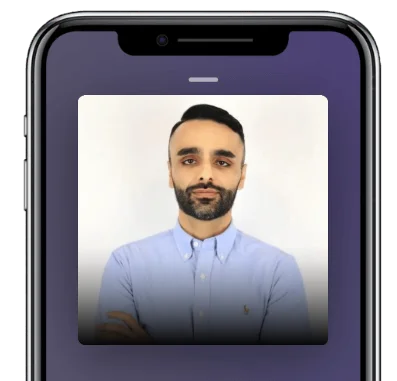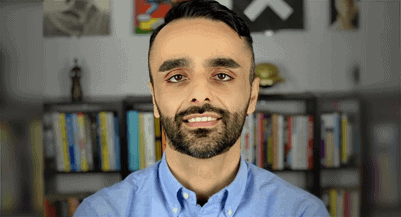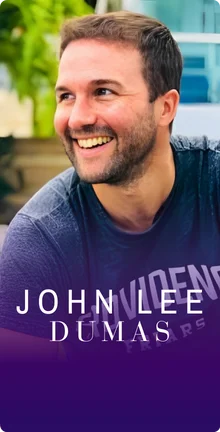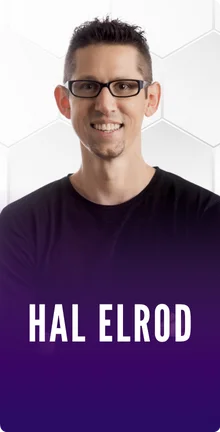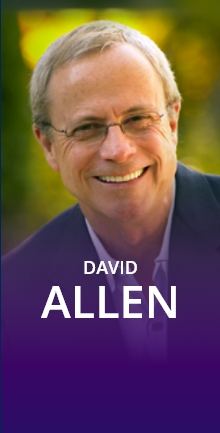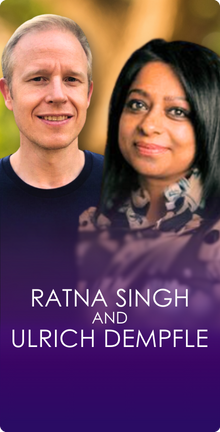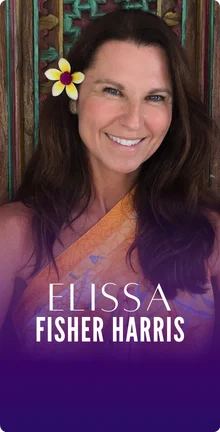In this Episode
- [00:38]Stephan introduces Darius Foroux, author of seven books, mainly covering topics on productivity habits, decision making, and financial wealth.
- [04:52]Darius shares popular productivity techniques that he disagrees with.
- [10:16]Darius explains why he doesn’t use habit tracking or to-do list apps. He also shares his approach in keeping track of his time and tasks.
- [15:02]What is the Pomodoro method, and how does it help with productivity?
- [20:46]Darius shares a practical way for people who are interested in self-development.
- [26:32]A tried and tested approach Darius uses to help him retain information better when reading books. He likes to use this when coming up with ideas for his articles.
- [31:45]What is imposter syndrome, and how can this be avoided?
- [38:24]Stephan shares his story about having comparative success syndrome and how he feels now looking back at his journey.
- [51:46]Darius recommends ways to eliminate attention residue, especially when working digitally.
- [59:24]Visit Darius Foroux’s website dariusforoux.com to get in touch with him and check out his courses, articles, books, and more.
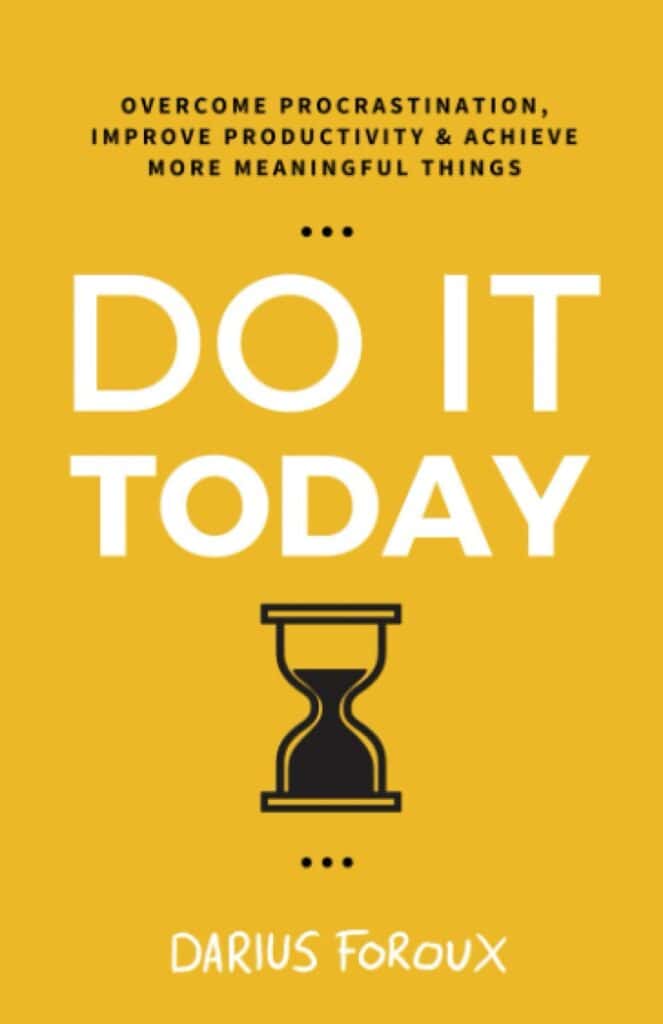
Darius, it’s so great to have you on the show.
I appreciate it. I’m glad to be here.
First of all, I’d love to start off by having our listeners learn a bit more about how you ended up getting so into the topics of productivity, habits, and decision-making. Was there a particular defining event that got you down that rabbit hole?
Sure. I’ve always been a productivity enthusiast and that defining moment for me was in 2010. At the time I was in graduate school, I was getting my business degree. My father who always worked for a company in the past wanted to start his own company. This is a good opportunity to do something together because I also was thinking about starting a business. Obviously, just getting a degree, I didn’t have any experience but I was willing to work. I was also working on my master’s thesis at the same time.
During that moment, as I was writing my thesis, finishing up my degree, and starting a business. I really noticed that I just can’t go through life without having a productivity strategy. At that time, I saw the power of productivity. Particularly, creating systems for yourself so you can perform at your job but also just make sure that you have enough time to do things that you enjoy because I’ve never been a real workaholic.
Even though I get a lot of stuff done, I also enjoy other things like watching movies, hanging out with my friends, and all those things. That was really the moment for me that I was going all-in on productivity. Since then, I’ve been researching it almost every single day, and it wasn’t until 2015 that I started my blog.
At the time I was talking about productivity with everybody in my network, friends, and all that. Some people were like, you should just share it on the internet and I shared it on the internet. I never thought about it. I started just doing some research and I noticed that a lot of advice on the internet I just didn’t agree with him. I was like, let me just share my perspective, and that’s how I got started.
What were some of the tips and methodologies that you didn’t agree with?
That’s a good question. My biggest issue was the whole you have to take cold showers. You have to wake up at 5 AM because specifically at that time and probably these things have cycles. At the time, I was hearing a lot about it, and it somehow reached me as well through my friends and my network. Obviously, later when I was doing my own research, I’ve never done that stuff and I’ve always been productive.
Stick to what suits your preferences best. If a productivity system or hack doesn’t work for you, you'll probably try it a week and then stop. Share on XI thought to myself, let me just share a different perspective. Those were my biggest issues. The cold showers, you have to wake up at a specific time, and specifically focus on tactics. That was not really my thing. I’ve always been more of a systems guy, and what I mean by that, I just have broad guidelines for myself.
One of those guidelines is that, for example, I prefer to get three or four important tasks done every single day. That’s just part of me, that’s who I am, and that’s easy to keep up. Even if your life is in chaos or something happens, you can still keep that up, but the cold shower stuff, everybody knows that if that’s not for you, you’ll probably try it a week and then you’ll stop.
I am not a morning person. I don’t like waking up early. Actually, for your health, it’s better to not have an alarm clock. If you wake up on your own, then you’re going to live longer, this from the research that I’ve been hearing about.
I’ve been doing that as well.
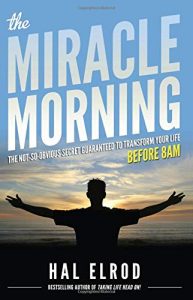
That’s awesome. Hal Elrod, you might know who’s got The Miracle Morning approach—I’ve had him on the podcast; great guy. He’s got his SAVERS framework, and that’s an acronym. One of the things about his model or methodology is that waking up really early and I don’t want to wake up at 4 or 5 in the morning. No, thanks.
I never implemented his system. It sounded like a great system. It sounded like it was transformational for many people but it’s got to be a fit for you. I totally agree. I’ve tried multiple different systems. There’s a lot about GTD that I really like. I’ve found David Allen on this podcast a couple of times, actually. He’s great but there’s something about the weekly review that I procrastinate the heck out of. I never get it implemented and consequently, I can’t remember the last time I actually had a weekly review, which is embarrassing to say because I’ve been such a proponent of GTD (Getting Things Done), and yet one of the core pillars of that methodology is the weekly review and it’s been years since I’ve done one.
The question is, have you ever throughout the SPL—the answer is probably no—did you have the need to do the review because if you did have the need, then you would probably do it, so you can operate without it.
I can somewhat operate without it. The problem is the way my brain works, I’m prolific with ideas. Ideation is one of my top five strengths in StrengthsFinder. Are you a fan of the StrengthsFinder assessment?
No, I’m not really familiar with it. I’ve worked at a corporation in the past as well and I remember they were really big on that stuff, but I prefer to not put people in boxes or rank. People like that type of system. That you rank or that you fall inside of a quadrant or whatever it is.
Not really, you get your top five strengths and for me, they feel like superpowers and they integrate so well together. It does help me. I don’t like being put into a box, but I also like to know what my superpowers are so that I can focus on those strengths and not work on weaknesses so much.
For the people who are listening, I’m just holding up a copy of Managing Oneself by Peter Drucker who also came up with the idea to focus on your strengths 30 years ago, something like that. I’ve been a big fan of his work. For me, focusing on your strengths and figuring out what your strengths are, I think what I based my whole career on. That’s why I do like reviews because I have that need. I have to drive.
I feel if I don’t do these types of, daily, weekly, monthly reviews, I just feel I’m not growing and I’m not improving, and because that’s such an important priority for me, I just automatically do it, so a big fan of focusing on your strengths.
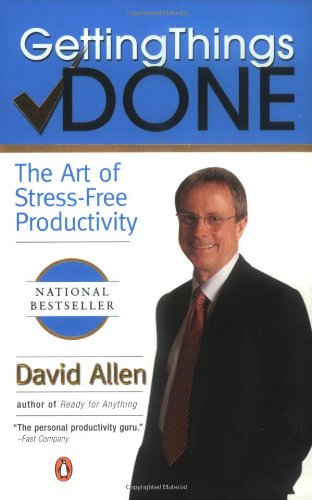
This idea of reviewing what you’ve got ahead of you and reviewing what you’ve accomplished is considered by many experts to be foundational because you celebrate your successes and your progress. How do you do that? You have to review what your successes were, how you know where you’re heading, and what outcomes you’re after. You’ve got to sit down, think, figure that out, and plan what you’re going to be working on for the day, the week, the month. I don’t do that and I think it has to do with the fact that I feel overwhelmed because I’m so prolific with my ideas. I have probably 5000 items in my Things app.
I have used Things by Cultured Code. My team uses Asana, Slack, and all that. I don’t use those things. I find them distracting and frustrating, even though they’re very helpful for my team, but I use Things and it’s very easy to implement GTD with and 5000 next actions are insane. It’s insane. I probably have 6000 by now, 5000 was when I last counted or tried to figure it out because they didn’t put the number there. It’s got to be at least 5000, probably 6000.
I’ll stress myself out, trying to do a weekly review. BJ Fogg—I’m a big fan of and we’re actually friends; I’ve got to have him on the podcast—named this emotion called shine, which is all about the feeling of success. If you don’t feel successful, then you don’t want to do the thing. It breaks the habit or it never fully establishes the habit. I’ll start off with the new habit, and I’ll track it in the way we have a LIFE app on the iPhone.
I’ll have some greens for the different days, and then I’ll have a red X and then be like, there went the feeling of shine and I don’t get it back. I don’t use the app anymore. I’m sure I’m not alone in this. I’m sure there are listeners that know how that feels. What do you tell those folks?

I’m the same. I don’t use those types of apps at all. I don’t use any habit trackers. I don’t like it, probably for different reasons. Ultimately, it all comes down to this. Are you using it? Most of the things that in my experience, apps, and systems as well, tips, and all these things that we’re talking about are mostly gimmicks. They sound fun and when you do that for a couple of days, it’s great, but then just life kicks in, and then you just fall back on your old habits.
It was funny that you mentioned the to-do list or the items and all that. A few years ago, I just stopped using a to-do list, and a while ago, I wrote about it on my blog and on Medium. You wouldn’t believe how many comments I got from people saying, “What? I just can’t live without my to-do list.” I was like, that’s exactly why this is an issue. In my opinion, you should always be able to live and perform without heavily relying on anything.
If something just falls out of your life or system, you should still be able to perform. If you really rely on a list to get things done, I see that as a sign of, let’s rethink what you are trying to accomplish in your life.
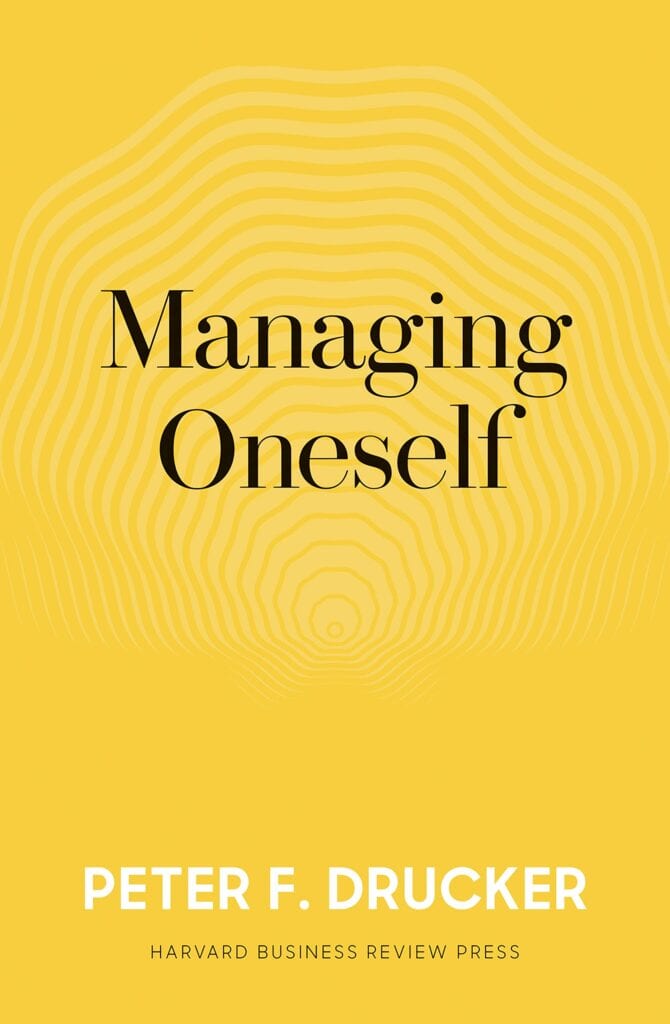
I’m a big fan of The ONE Thing by Gary Keller. That’s one of my favorite books and I think that’s such an important strategy, and I’ve been applying that as well for many years. If I just look at the way that I organize, I use Trello. I don’t use a to-do list and the way that I just organize my life, website, and all that is that I have my top priorities. Those top priorities have been the same for about two years. Those priorities never changed. It’s not like a list that I just say this is done.
If I have any tasks—obviously everybody has tasks—I put them on my calendar. I work from my calendar, and that’s what makes this system so easy. The reviewing gets so ingrained in my system that every evening I’ll just take 5 minutes, sometimes 10 minutes, just think about the next day, I look at my calendar, and I see the things that I have to do. I’ll make sure that I’ll do them and if I just don’t get a chance to do those things, I either move them to another day and time or I just get rid of them if it was not that important.
Are you blocking out time on your calendar?
Yeah. I got a big article on time blocking as well on my website and this is a strategy. I remember I was doing this in high school. At the time, I didn’t know what it was, but I would just study in blocks. I grew up in the Netherlands and football or soccer is pretty big here. I blocked my time when I was studying in 45-minute blocks because that’s half in these games.
I would imagine myself playing a soccer game, but instead, I was studying so I would study for 45 minutes, blocked it on my calendar, then I would take a 15-minute break, and I would just go at it again for 45 minutes and then after that, I would play another match if I wanted, or if I was done for the day, I was done. I’ve been doing this for so long, and it’s been so fruitful that I just kept it up and you just fill it in different ways.
For example, if you want to write a book, you can simply use the same strategies, block time, work on the book, take a break, and then just go at it again.
You didn’t know about the Pomodoro Technique back when you were doing the 45 minutes and 15 minutes, did you?
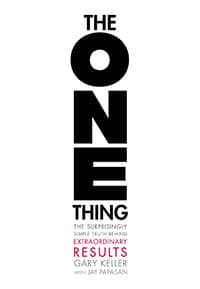
At the time, I didn’t know it was called the Pomodoro method. Later on, I learned about it and I was like, “Whoa, I’ve been doing this for years.”
That’s amazing. What foresight.
They are the Pomodoro method. For the last several years, I’ve been doing the Pomodoro and I like those 25-minute blocks of work. That’s basically what I’ve been doing.
Are you now doing 25-minute blocks?
Yeah.
That’s because of the Pomodoro method. It says that it should be 25 minutes which is curious that it’s 25 minutes. Apparently, I’ve had Will Henshall on this podcast talking about attention flow states and he’s got this technology called Focus@Will. It allows you to get into a flow state for a longer period of time than the 25 minutes. You could stay in there for maybe an hour, but you have to listen to streamline music and not to distracting music that would be stuff that you listen to on the radio, favorite songs, things with lyrics and stuff that will distract you and knock you out of the flow state but certain types of music can be what he calls streamline music, and that will keep you in that flow state, so you could do hour-long Pomodoros.
Yeah. I think the Pomodoro guideline is something like take a break between 20 to 45 minutes or something like that. You can do 45-minute blocks. The reason I like the 25 or 30—it doesn’t really matter—is that after 25 or 30 minutes, I just stand up from a chair and just walk, have some water, and I just get back and my flow state or whatever doesn’t get broken so I just get right back into the task.
I find that it works well for me, but for example, if somebody says I have this Pomodoro for 25 minutes, and then I just grab my phone, and then I’m lost for 30 minutes, I will probably do longer blocks. I’m not that. My phone is not a really big distraction for me. I don’t have any notifications on or whatever. For me, those 25 minutes work really well but it’s all about experimenting with whether you need a few more minutes until you take a break or not.
On the topic of owning devices and apps that boost productivity, remember it’s vital to always be able to live and perform without heavily relying on gadgets. Share on XYou said you don’t have any notifications on your phone. Do you also have your phone set to grayscale mode because that’s another thing that I’ve learned about is you can triple-click to grayscale mode on your iPhone, and then if you’ve set it up properly in your settings, and that will keep you less on your phone because the grayscale mode isn’t that exciting. Then, turn off all your notifications, all the badges, all the different things that will draw you in. Turn off everything that could put a red bubble next to the icon and say you’ve got 5000 emails or whatever. Another thing we should talk about is like an insanely huge inbox. Anyway, do you do that little grayscale trick?
No, I don’t do it but I have read about it. To be honest, it sounds good. There’s something that if I had some issues with my phone, I would probably try. I like these types of systems and just ways to almost trick yourself into avoiding certain behavior or adopting certain behavior. This just reminds me of the whole thing that a lot of people do is they get their gym clothes ready the evening before.
I more or less do that as well. I just make sure that my gym clothes are within eyesight. I don’t tuck them away in my closet or whatever. I just make sure that I have something that I see visually and if I see it, that’s something that’s always on my mind. Those types of strategies always really worked well for me. I just have things remind yourself of what you are after.

Also, batching these things together so that it’s all part of one bigger habit, so you can piggyback with an additional habit on an already established habit. One thing that I’ve done is I take a shower every day and now I have tied into that showering habit. Getting on my exercise bike.
I’ve got this CAR.O.L bike. I’ve had the founders of the CAR.O.L bike, which is an AI-based stationary bike. It’s really cool. It figures out how much resistance based on an artificial intelligence algorithm. Anyway, I ended up getting that bike for free from the founders and it sat there for about three, four months, more or like five months. With me using it maybe once or twice the whole time. I just wasn’t interested in establishing that habit. It wasn’t burning fire under me but now we’ve been self-isolating with the quarantine and everything.
I need to exercise and this is one of the easiest ways. It has this process or this methodology where you do these hard out sprints for 20 seconds, so do two of them, and then the rest is just a warm-up, recovery, and then a cooldown. It’s 9 or 10 minutes all in and is the equivalent of 45 minutes of hard-out jogging. That sounds really good, so now it’s part of my habits, part of my routine. I won’t take a shower until I’ve used this thing.
That’s how I’ve piggybacked on one habit with another. It’s hard sometimes. It’s hard for folks to establish these new habits, especially if they know it’s good for them, but it doesn’t feel amazing at the time. It doesn’t feel great to do a heart out sprint where I’m pretty winded by the end of it, but I know it’s good for me.
What do you recommend in terms of habits that are good for you, you know that they’re good for you, and you don’t get that immediate gratification feeling? It feels a lot better to eat a doughnut than it does to go jump on the exercise bike. What do you tell people about that?
Working out, I’m big on working out as well. Like you say, I like your example because you don’t necessarily have to go for a two-hour run every day or even a one-hour run. I even think that’s too much for most of us. And what you described. I think most people if something is really hard, very complicated, or very difficult to do. This is something that I always write about and talk about. If something’s too hard, I’m not going to do it.
I’m not an Olympic athlete or anything. I don’t plan to run marathons. I don’t have any super physical goals. The reason that I work out is because I want to stay fit and I also want to have more energy. When I’m trying to achieve something, I always try to reverse engineer it and say most people look at the outcomes. I go back and I’m like, why do you even want that? What do you want to achieve? What do you want to accomplish?
I remember as well in the past, I got excited about running and I was like, I’m going to run every day. After a while, I was like, why am I running every day? After a while, I was getting injured. I wasn’t having that much fun anymore, and I thought to myself, do I really want to run a marathon? No, not really. That’s not something that I want to do. Maybe one day, you never know but right now, it’s not a priority to me. I think to myself, what’s my goal here? Now specifically, talking about working out but any type of habit, I have the same thinking pattern.
Maintaining productive habits shouldn’t be challenging. If something is too complicated or very difficult to do, you’re not going to do it. Share on XWorking out is very big for me. Journaling is also one of the most important things for me that I get a lot of energy from as well. Self-development, self-improvement comes a lot from journaling. Everyday reading is really important to me because obviously, I see that this is my job to share knowledge, write articles, books, and all that stuff.
I spend at least one hour a day reading, but if there wasn’t specifically my job, I would probably still read for at least 20-30 minutes a day because it’s just good just to learn new things and all that stuff. The last thing I would say is meditation, some meditation practice but to be honest, that’s it. These are the four things and I’ve been thinking about this recently as well because I remember last year or so I wrote a list of 10 habits, and I’ve shared a lot of these habits and all that stuff, which is great.
If you really want to look at the core, I think it’s just like for me specifically just four things, working out, journaling, reading, and meditating. If I do those things, everything is alright.
That’s great. When you say you read for an hour, are these long-form content pieces? Are you just reading articles or you’re reading books?
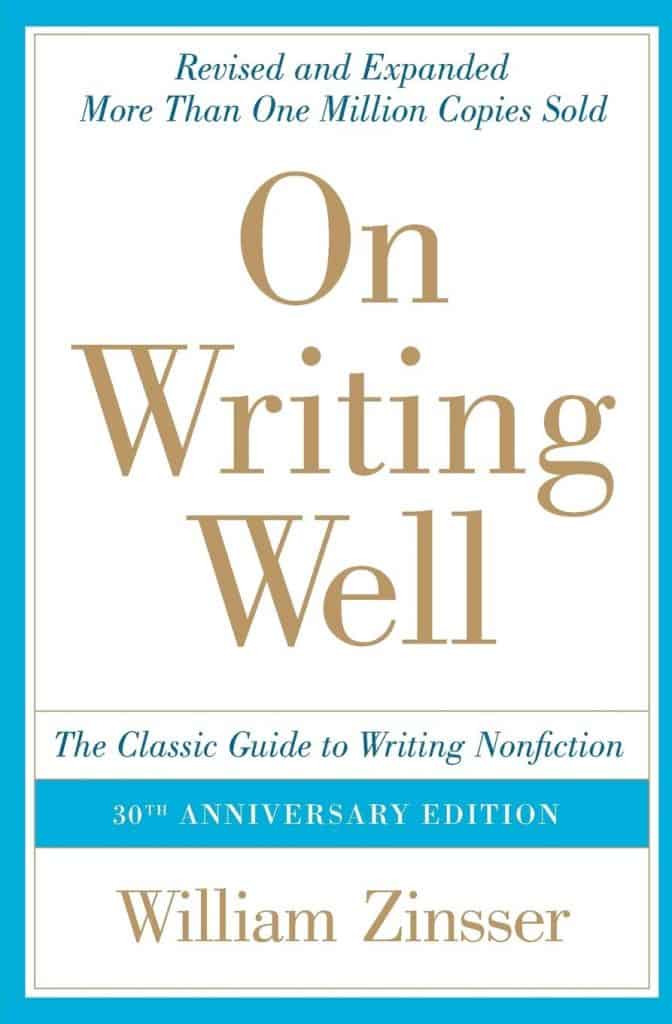
Books. I probably read more every day, but I spend at least one-hour reading books. The way that I organize that is in the mornings is part of my morning ritual, if you want to call it that. Before I really get started with all my work and everything, the daily tasks, my most important thing is actually writing. So I wake up and I immediately start writing. Everything that comes after that is just a bonus. That’s how I look at it, but I spend at least 30 minutes in the morning reading and then at least 30 minutes in the evening.
Sometimes I even read an hour in the morning and maybe 45 minutes in the evening, depending on how good the book is. If it’s a really good book, I really want to finish this. Outside of that, I read some articles throughout the day and maybe some because I write about personal finance and investing as well. Then to read the Wall Street Journal a little bit even though that’s not that important, but just staying on top of the news, what’s going on, but I don’t spend too much time on those types of reading more books.
You don’t get your stock tips from the Wall Street Journal.
No. That’s probably already too late.
You’re reading split into two segments, in the morning and in the evening. Do you have the morning as a nonfiction time and then you have the evening being fiction reading or is it just continuing with the same book in those two time slots? How does that work?
Most of the time I spent the morning reading nonfiction and specifically more how-to books. For example, I always want to read about writing, so I always make sure to have writing books, whether that’s just academic writing, journalism, or copywriting doesn’t matter for me. I read all those different types of books because for me this is my job and my craft. I always want to be reading about writing as well.
What’s your favorite book about writing?
My all-time favorite book is On Writing Well by Zinsser. I think if you just want to read one book about nonfiction writing, that book will probably teach you 80% of what you need to know.
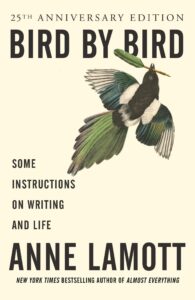
I’ve heard a lot of good things about Bird by Bird. Have you read that one?
I’ve read that as well. That’s more strategic, just the mindset, and all that stuff. I enjoyed that as well, but I just want to have somebody tell me to do this and don’t do that. Very straightforward and William Zinsser was really good at that. That’s a really good book. In the morning, I’ll read those types of books or I’ll read investing books.
Probably, it’s becoming my favorite investing book, Peter Lynch. I think it’s called Beating the Street. He has two books. Both of them are great but his first book, if you want to get into just stock picking, that’s great. I read those types of business books, online business you name it. I like those types of books in the morning. In the evening, I haven’t been reading that much fiction lately, but I read biographies or just easy-to-read books that I don’t have to highlight.
I highlight a lot and take notes and all that stuff when I’m actively reading, but in the evening, if you’re lying in bed, do I really want to lie in bed with a highlighter and a pen? In the evening, I’ll just grab my Kindle and I can still highlight but I could just relax a little bit more and just read without actively thinking and processing because as I’m reading in the morning I often also come up with ideas for articles, how I can apply it to my craft, or how I can apply it to my business.
Then I just want to take notes and sometimes even I have this as well. I don’t know if you have this when you’re reading a book, then you’re reading, for example, business book or whatever, and you read one ID and maybe you’re five minutes in, and then like, oh, I need to work on this. I try to avoid that in the evening.
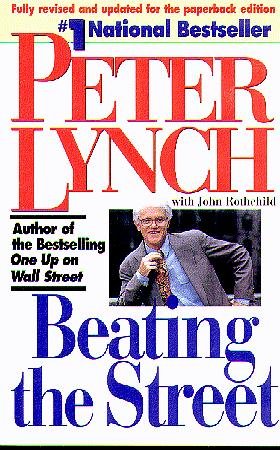
That makes sense. How are you taking notes? Are you using a reMarkable tablet, an iPad, or just a notepad where your pen is on paper?
I have a whole system for taking notes. Most people don’t have to go that too far.
You have an article on that, I guess?
Yeah, I do.
What’s the article title? What’s that article called?
I have one article on how to retain more from what you read. I think it’s the full dialogue, maybe part of the title, but I apply this strategy. I always start with highlighting. I read with a highlighter and (obviously) I ready paperback books, highlighter, and pen. If I have an idea, a thought, maybe I agree, I disagree, or whatever, with a sentence or an idea, I’ll just write it in the margins.
I’ll just go through the book and I don’t want to stop and for example, go to Evernote or go to my notebook and make notes because if I do that, then it’ll probably take me a month or so to read the book. My thing is when I really get into a book, no matter whether it’s 200 or 300 pages, I always like to get this done in a week.
If I want to finish a book, I have to consume the whole thing within a week and I just want to do the book once. When I finish the book, I’ll go back to my highlights, and I just go through the book quickly. When I say quickly like in 30 minutes. I just read the highlights and all that, and then I’ll start writing about the book in my own words. I do this in Evernote, or I do this in my notebook.
The goal of this process is not necessarily to use those notes later, but it’s for me to just internalize knowledge and my experience as a teacher, is that if you learn the content, or if you read a book with the intention to teach it to somebody else later on, you’ll retain much more of the information than if you just passively read the book.
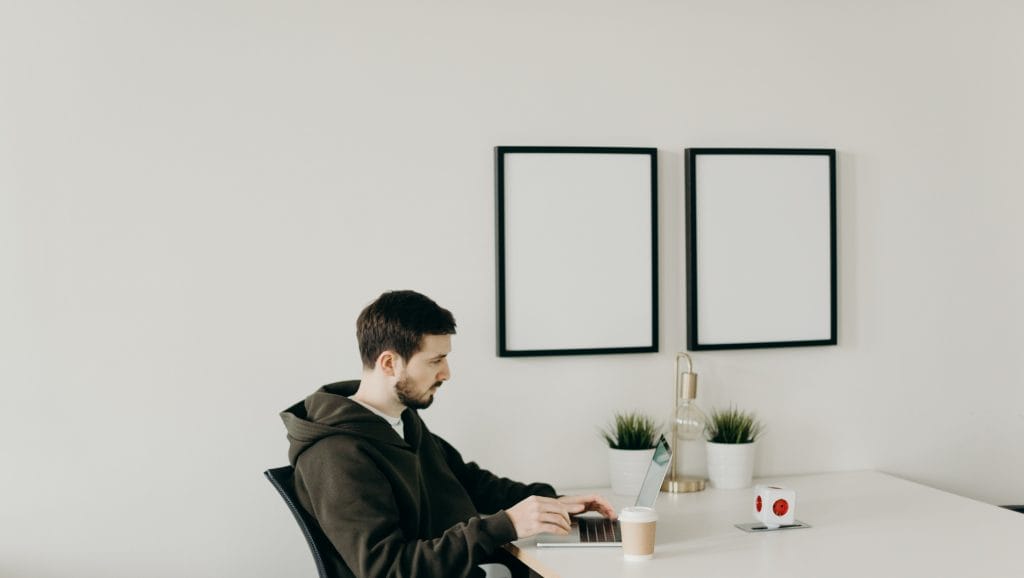
That actually applies to everything and I use that factoid when I present on stage. I explain at the beginning, if you listen with the intention to teach what I’m going to teach you to others, think of somebody, put somebody in your mind who would benefit from the SEO skills and techniques that you’re about to learn. It could be a colleague, it could be a boss, a direct report. It could be a loved one, your child. I taught my oldest child who’s now 28, SEO, and online marketing when she was 13–14 years old. She started a blog at 14 and then started making passive income with it. Speaking at conferences at 16.
I’ll go on that little aside for a minute, explain that if you have a child or a loved one who could be empowered in that way by SEO, pay special attention to what I’m about to teach you. The retention rates go way up. I said, maybe 30%-some without that intention, but could be 90%, if you have that intention to teach it to others. It’s really powerful.
It’s so important. I think if once you start applying this consistently to life, like you say, everything that you learn, it doesn’t matter what it is, if it’s a book, podcast, audiobook, presentation, video course, if you just think about how you’re going to teach somebody else, how to do this, then the difference is between day and night, because once you have that mindset, I think you also look at yourself differently.
A lot of people just read books or consume content, and they are hesitant to take action. I get a lot of these types of emails from my readers and they say, “I want to start a blog or I want to start a YouTube channel. I like this and that, all kinds of reasons.”
You just have to take action. That’s how you make sure that you use stuff that you’ve learned.
Yeah, excuses.
Exactly. You can name any type of reason that you want, but ultimately, these are excuses to not do it but at the same time, sometimes we just feel like who am I to say something about this? I don’t think that is an excuse because that’s a very real concept that most people have.
You think to yourself, they call this imposter syndrome. Who am I to talk about this particular topic? You can say that for everybody who got started. At the end of the day, you just have to take action. That’s how you make sure that you use stuff that you’ve learned because even though all the things that we talked about, if you don’t apply it, what’s the use?
Did you have imposter syndrome or do you have imposter syndrome?
No, I didn’t have one. The types of emails and messages that I’ve received from my readers, the way that they describe it, I can definitely relate but I didn’t have that because I think there are many reasons.
My mother was always very supportive of me. I think that has played a role as I was growing up and speaking my mind, because no matter what happens, if you go home there’s always somebody that has your back. Even if I fail, so what? That was always my mindset going in everything. For me, that was really huge. I think that’s why I also wasn’t afraid. I’ve never called people out but I was never afraid when I started my blog, just call bullshit on a lot of things.
I think that’s good just to speak your mind and I have an article about this as well. A while ago, I got a lot of these types of questions. I was like, let me just share my perspective. Why is it actually good to say what you think? You don’t necessarily have to search for confrontations.
You’re just sharing ideas, like the way that we’re doing, like you said, I was listening to a specific system. You’re not a morning person, so what? That doesn’t mean the other person is wrong. It’s just not a good fit. That’s how I look at everything. I don’t think there’s any right or wrong. If something doesn’t work, it’s probably that’s the work for that specific person or situation. It doesn’t mean it’s wrong.
If something doesn’t work, it’s probably that’s the work for that specific person or situation. It doesn’t mean it’s wrong.
It’s either a fit or it’s not a fit. There’s no judgment around it.
Exactly. If you look at things that way, then you’re always good to share your perspective, learn, fail, and you have nothing to lose.
For those who do have imposter syndrome or have had it, I think I’ve had it and I’m much less affected by it now than was years ago, I actually had Elissa Fisher Harris on this podcast talking about Imposter Syndrome. She gave me an interesting distinction about it that there’s a related syndrome that is called Comparative Success Syndrome. I resonated with that more than Imposter Syndrome where I used to feel like I could have been a real change-maker in the area of medicine, biochemistry, and biotech but I gave that up. I was studying for a Ph.D. in biochemistry and I dropped out. I got the Masters which I do absolutely nothing with. I dropped out of the Ph.D. and then I started an internet company. This was in 1995.
I think I had a lot of potential in that area of science and I gave it up. I don’t feel any regret or remorse now because I think this is ultimately supposed to be my path, but for a long time, I felt like I had squandered a gift or had taken the easy way out. Go after the money because everybody’s making money on the internet.
Was that the reason that you quit or was there a different reason?
No. It’s the combination of things. I’m a real geek at heart. I started programming when I was a little kid. I taught myself not just basic, but assembly language. I was coding in hexadecimal when I was a kid. I wrote my own bulletin board system. This was back before the internet and the web. I started my own BBS and rendered it on my home phone line. Really upset my mom when she picked up the phone and heard the modem gone all the time because people would be dialing into our home phone line.
I was a real geek. I got so into it that I became socially awkward. I realized I needed to go cold turkey. I gave away all my software and sold my computer. This was maybe freshman year of high school or sophomore year. I joined the track team, the cross country team, the cycling club. It went completely to the other end.
Big shift.
Big shift, which was good because I was going down this really deep rabbit hole and hanging out with not just geeks but geeks who are causing trouble. Probably would end up in prison sort of folks who were hacking.
Getting to enjoy life is the whole purpose of productivity. That's why I got into this stuff because I want to have time for other things. But just in general, I want to enjoy the process. Share on XThey’re the early hackers of the day.
Anyway, I went cold turkey, became less of a geek, more popular, and all that sort of thing but I felt like I gave up part of my core. When looking back, I realized that I’m still a real geek still. In 1993–1994, I started getting back into coding while I was going to school studying for the Ph.D. I started building websites on the side. I went to a conference. I met Rob McCool, if you know who that is, probably you don’t. He’s the creator of Apache which is running most web servers on the internet at the time. He was working at Netscape. I had never heard of Netscape. It was 1994. He was building the Netscape server at the time.
I’m like, “Wow, I could see this. This is gonna be the next big thing.” I dropped out of my Ph.D., but at the same time, I had this run-in with my advisor. I was working in his lab. He didn’t like the fact I had a family with young kids and I would go home at 6 in the evening when other grad students were working until 7, 8, 9 at night. He gave me an ultimatum which I chose to not abide by. He forced me out of his lab. Well, I’m not going to start over again with a new lab. I lose two years, I’m out. So, I started an internet company and an internet agency. That’s the whole long story.
That’s pretty fascinating.
Now looking back, I see that this is all part of a bigger picture. It wasn’t just me copping out or taking the easy way out. It was actually a lot harder to start a company when I had no business experience. I’ve never even taken a business class or marketing class and here I’m starting a marketing agency. In retrospect, I’ve probably revealed a lot of light with the stuff that I’ve worked on, helping people with their SEO, helping them get their message out there, and revealing light in the world. It’s a long story. Sorry to go into that.
I think that’s very interesting. Obviously, I have my own podcast as well so I interview people sometimes. I’m always interested in hearing those types of stories. Almost everyone who has these types of ventures or sharing stuff on the internet has a backstory. For me, what I’ve noticed for most people is that even though we talked about it at the beginning like you were asking me what was that moment for you that changed certain things, but there are often a lot of different factors that come into play. When they combine, then you get great things.
That’s how most of us just operate in life and make life decisions, not just because of one specific reason, I want to make a lot of money, but there are a lot of different things that are important to most people. For me, if I look back on why I pursued this specific career as an author, blogger, and online teacher, I think to myself, one of the most important things was to have more freedom and also do something that I truly enjoy which is just learning and translating knowledge into simple directives. If I look at the core of what I do, I think that’s all I do. I just read a lot of books and I just consume a lot of knowledge. I try to connect the dots and I present it, like here it is. Here is what you can do with it.
The first step to productivity is getting rid of time-wasting activities. Share on XBy the way, I forgot to ask you earlier about the book reading. Do you prefer physical copies, reading on Kindle, or some other device?
When I read in the morning or if I read it throughout the day and I make notes, physical. In the evening specifically for the last year, I really like my Kindle. I have the latest Kindle, the more expensive one with a very good screen, almost a high def screen, which has been, for me, massive because that just basically resembles a book. I’ve had the older Kindle Paperwhite and all that. I didn’t really enjoy them because they felt like plastic and the screen wasn’t that great. I never felt really comfortable. I’ve never had a really good experience reading. I read so much, so let me just invest in this better device, and it didn’t disappoint.
That made a big difference for you because I don’t like the Kindle Paperwhite. It sits as a paperweight in one of my drawers. I haven’t taken it out for years. I have Kindle books that I bought that are just sitting there collecting virtual dust because I don’t enjoy reading off of that thing. I have the reMarkable tablet that I really enjoy but I don’t use it to read more as I use it to write on because I’m a handwriting guy. I much prefer to handwrite. It uses a different part of your brain. It engages your brain more fully when you’re taking notes by hand. I just love that thing. Anytime I’m at a conference, I’m using it. It’s right here. I take all my notes on this thing. Even if I’m here at home and I’m, let’s say, participating in a Zoom training or whatever, I’m going to use the reMarkable tablet. Have you tried that tablet?
No. I’m so attached to this guy here, my Moleskine. I just have it with me everywhere I go. Like you say, I feel the same feeling that you get when you write and when you use your hands that specific way. What I really enjoy is my evening journaling. I just sit down at my desk, no computer or anything, turn everything off. Maybe just listen to some music if I want, but you sit down and just take notes. That’s it. It’s so simple. It’s timeless. It just feels good. For me, the Moleskine is really big and the pen has been very important to me. This is a Uni-ball Signo and this is a gel pen. I’ve tried a lot of pens. These pens cost a few dollars. I always buy them in bulk from Amazon. The whole feeling that you get with this combination is it sounds nice as well. It’s weird to say but when you write, it just has a really nice sound of ink. I really enjoy the process.
That’s cool. Do you end up digitizing any of your writings that you’re taking in the Moleskine?
I’ve done that as well in the past. Every now and then, I just get this whole thing, like I need to take snapshots with my Evernote app. I like Evernote because obviously it translates handwriting. You can search for your handwriting. But in recent years, I haven’t done that often, only if I’m writing out my strategy for the website or whatever it is, something very specific that I want to access, then I’ll take a picture. I’ve tried it. I think this falls into the bucket of you’ll try it for some time with the habits and then after a while, you just quit. I’ve learned that it wasn’t really something that I needed. That’s why I stopped doing it.
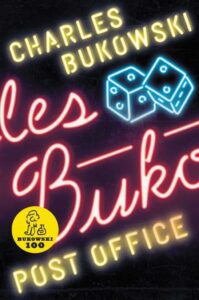
Most of the writing that you do is just journaling and thinking time which is such an important concept. I learned that from Keith Cunningham. He has a schedule of thinking time. He even has a thinking chair where he’d only sit in that when he’s doing his thinking time. It’s so brilliant.
I like that. I like those things.
This pen I would use for years and years, do you know what that is? This is an Echo Livescribe pen. Echo makes multiple types of these pens. They will record your handwriting and you just use paper notebooks, but you have to use a special kind that has these tiny little dots that the little scanner here at the end of the tip will pick up. It will digitize your handwriting as you’re writing it. I would use this all the time for note-taking, but then I graduated to the reMarkable tablet because it has that really nice feel to it. The stylus has a felt tip to it which eventually wears out and then you replace it. It just feels really good to write with this felt-type of stylus. You can have these different modes like a pencil mode, ballpoint pen mode, or a marker mode. It really feels almost like the real thing.
That’s really important.
I love that but it doesn’t have the sound that you’re describing. I do like that sound. I think that’s part of the whole experience.
Definitely. I think you made a good point about the feeling. People will get into productivity, especially if you’re a programmer, if you’re a real geek it’s easy to just look at the practical value of something. Hands down, the best way to take notes is to do it on these reMarkable tablets or an iPad Pro with a pencil and have it automatically digitized because that’s the most practical thing to do.
To OCR but that’s the step I don’t do. I don’t like having it turned into a regular text. I like my own writing.
Same here. My point is if it doesn’t feel right, even if it’s practical and it makes a lot of sense, I still won’t do it because it just doesn’t feel right to me. At the end of the day, like we talked about in the beginning as well, I also want to enjoy my life. To me, that’s the whole purpose of productivity. That’s why I got into this stuff because I want to have time for other things, but just in general, I want to enjoy the process. For me, journaling is really important because obviously I enjoy it. I’ve tried journaling on an iPad Pro. It just didn’t feel good. I make my drawings for my website on the device. That’s great because in the past you can’t easily make those types of drawings. It works great for that purpose. I tried journaling on the device but it just didn’t feel good.
That got to feel good.
So I stopped.
There’s a lot to be said for just getting into the vortex, a term from Abraham Hicks. If you’re not in the vortex, what are you doing? You’re just spinning your wheels. I know we’re close to time here. We got a few minutes left. Do you mind if we go into a lightning round mode where I’ll just ask you quick questions and you give me quick answers?
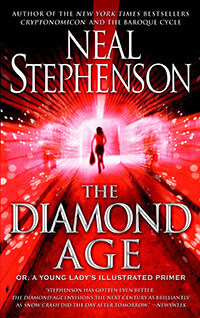
Yeah, sure.
Let’s do it. You didn’t give any recommendations for nonfiction books. What would be one or two of your favorite nonfiction books or biographies?
Do you mean just nonfiction in general?
Any kind of nonfiction. Sorry. Let me restate that. What is your favorite fiction book that you read in the evenings? That’s fiction. That could be biographies as well because you read biographies in the evening. I restate that.
My favorite fiction author is Charles Bukowski and my favorite book by him is probably Post Office. It’s such a funny book. I’ve read it several times. A lot of my style also comes from him because I see Bukowski as an inspiration. I would say if you want to get started with Bukowski, I will just go with the Post Office.
Is that a comedy type of book or is it science fiction? What is that?
No. It’s just a realistic type of fiction book of an alcoholic who just wanders the streets of LA and just gets into all kinds of trouble. It’s such a character. He’s just like, think to yourself when you’re reading. This can’t be real, but he based it off of his own life. That’s why I like it because it’s so genuine.
That’s great. My favorite fiction book by the way, which I’m not a big fiction reader, is The Diamond Age. If you haven’t read that one, check it out. I bet you will love it.
Next question, are you familiar with the concept of attention residue? I learned this from Cal Newport who wrote Deep Work. If you are, what are you doing to address attention residue besides turning off notifications and trying to keep those Pomodoro moments more sacred?
I read the book but I can’t remember. My system probably failed me at that point. I can’t remember the concept anymore.
If you are in deep work and then you get distracted by a notification on your phone or text message, whatever, and you quickly glance at it, you will have a part of your brain still attached to that thing for the next 20-25 minutes. I think this is what the research shows. That is costing you in terms of taking some of your attention away from what you were working on.
Like context switching?
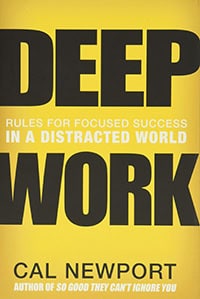
Yeah. That’s terrible, right?
Yeah.
What do you do to reduce or eliminate attention residue in your life?
When we talked about Pomodoro, for me it’s really important. The thing that I want to mention is it only works if you really take it seriously, so have the timer visible on your computer. It’s easy to turn off your notifications but what if you work in an office or now that we’re working digitally and maybe you have your email on, you have your Slack on, whatever it is, and somebody comes in with an urgent request, you need to have the discipline to just say, “Hey, can you wait 12 minutes? My Pomodoro is almost up. It’s done.” I think that type of strategy is really important to tackle, that concept that you mentioned. It’s great to have all those strategies but you also need to have the discipline to just live up to those things.
The boundaries and have people respect those boundaries.
Exactly. It takes a lot of training and a lot of patience as well just to educate everybody who’s around you. The way that I see it is you have to protect your attention with everything you have. You just can’t allow anything to penetrate that attention because if you do like you mentioned, there’s some serious cost to that, the whole context switching concept. So, even if you’re in a Pomodoro, if you don’t focus on work and somebody just comes in with a quick request and says this just takes two minutes, like you said, research shows that it can take up to 20–25 minutes to just get back to your original task. That adds up very quickly.
Last question, what’s your favorite productivity book, other than your own books, and favorite productivity author?
I would again say Peter Drucker and The Effective Executive. Even though that is a book focused on more corporate types of productivity, based on the title you could already get that ID, but it has a lot of personal productivity tips as well inside of it. My favorite tip from that book is to keep an activity log. Peter Drucker would recommend to every client that he would start working with. He will just tell them, hey, keep an activity log for just two weeks and after that, we’ll talk. I recommend everybody to do this. If you’ve never kept an activity log, just drive for two weeks and just see what happens because most of us will learn that we’re wasting way more time than we think.
I’m sure I’m wasting some time. They say, minor in the majors and major in the minors. I tend to do that sometimes. It’s a struggle for me.
The activity log can be very helpful.
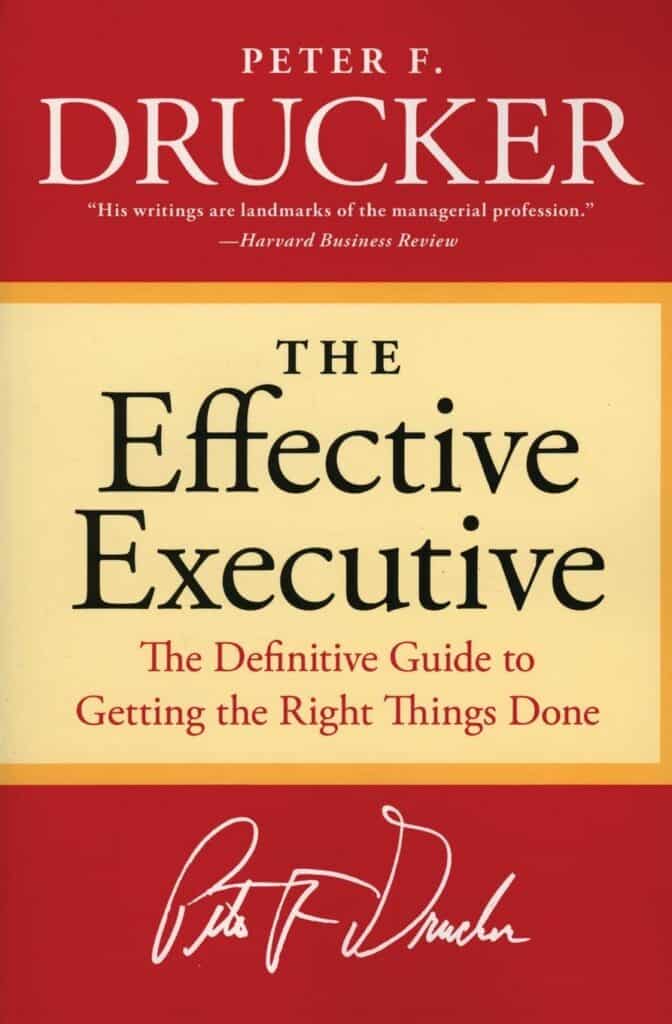
I’m going to do that. I’m going to start recording. I have RescueTime installed but that’s different. It’s in the background. If I never check it, what’s the whole point? I have no idea what I’m even spending my time on, what apps, and things if I don’t go into the RescueTime reporting and see where the hours and days went to.
When I just do the activity log, I just keep a legal pad or whatever, something that’s open. I will just leave it on my desk so I can see it again. I just write down between 9 and 10 AM and just very roughly every hour. That gives me a good sense of where my time is going.
That’s great. Do you do that every day or are you just doing it maybe for two weeks just to do it exactly for yourself?
I recommend doing that for two weeks because again, this is one of those things. I don’t know people who can keep it up for years. There are people who claim they have been doing it. I don’t know if that’s true, but for me, it doesn’t work anyway. Also, in the advice of Peter Drucker that the whole purpose of this thing is to see it as an assessment of yourself. Again, you don’t want to rely too much on tools. What I do is if I notice that I’m very unproductive and I get frustrated, for example, I want to accomplish this and I want to do this. After a while, I notice I’m not doing anything. I think to myself, now is a good time to keep an activity log and be very serious about it, even if you do it a week. It’s better than zero. After a week, you just look at it and see if you can learn something from it.
My goal is always to eliminate time-wasting activities. As an example, I did this exercise I think quite recently this year. I noticed that I was just spending too much time researching social media stuff. I don’t do anything with it for my website. I need to research. I was spending an hour or sometimes, even more, every single day just browsing other people’s social media. I was like, “What’s the use of this?” So I just stopped and I just got rid of all of those apps again because that’s my whole strategy as well. If it’s distracting, you just get rid of it until you really need it. I did that.
You actually deleted those apps from your phone?
Yeah. I just delete it from my phone. Everything is great. Nothing is different. My website is still doing well. It’s not the end of the world.
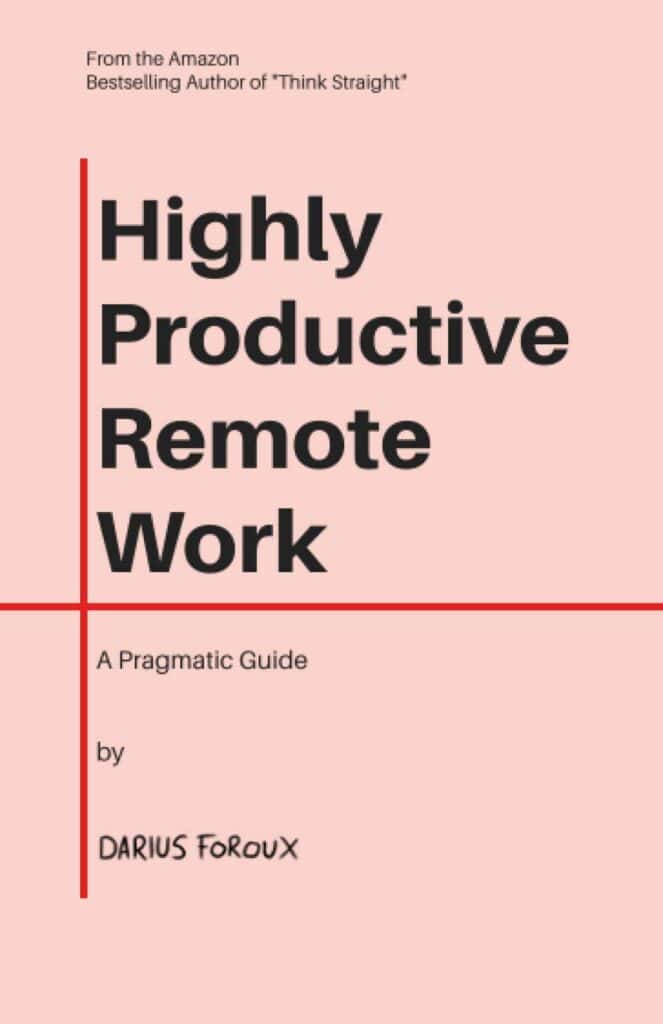
So many people now are working remotely and they need to be able to manage their time, the distractions, and all that much more even when they were working at an office. I know you have a course that you just launched about remote working called Work First. Do you want to say a little bit about that and give the URL for folks to check that out?
Definitely. When the pandemic started hitting Europe and later America, a lot of my readers wrote to me and said, “Hey, what are your ideas? What are your strategies for this?” I’ve been working from home full-time since 2015. Before that, I would work probably two or three days from home. Everything that I’ve learned, I’m going to combine this in an affordable crash course that takes about 2½ hours to complete. We worked on the content for about a month or so. Last week, I launched it on my website. I’m very pleased to see the responses. The stuff that we talked about, I focus a lot on strategies, systems, and all the things to make working from home easier for you because like you said, there are a lot of distractions and it can be quite difficult. The whole purpose is to make working from home easy because if you don’t work on it, it can be very tricky to work from home.
Very good. If folks wanted to check that out, if they wanted to read some of your articles, follow you on your various social channels, and all that, what’s the primary URL that they would start with?
I appreciate that. The best way to just get in touch and learn more is through my website, dariusforoux.com. If you can’t spell it, search for Darius F. It will show up on Google. My primary way to connect and communicate is through my website, not so much on social media. On my website, you can also find more about my courses, books, and all that.
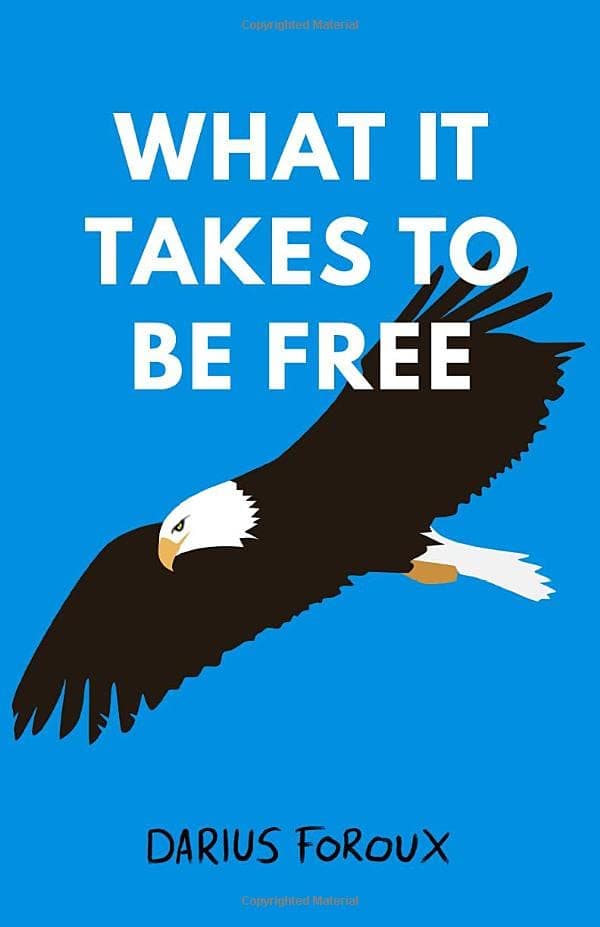
Very good. You should try and rank number one for just the name Darius. That would be pretty cool.
I haven’t checked it in a while. I don’t know.
I just checked you’re not number one.
It’s probably the Ancient Emperor.
Yeah, the Persian King.
It was difficult to beat that.
Actually, who’s beating him now is Darius from League of Legends which I haven’t played, but there’s a character called Darius from League of Legends. That’s out doing Darius the Great from Persia.
I’ll need to check out your courses to see how I can rank number one for Darius.
Thank you so much. Thanks for going a little bit over with time. This was just a fun and fabulous information-packed, wisdom-packed interview episode. I really hope that our listeners take some massive action from this because there is so much more than they could do in the world and have if they just focus and apply themselves in a way that still is fun and just aligned with their mission. Thank you so much, Darius.
Thanks for having me. I got to say, I really enjoyed talking to you, Stephan. We talked about a lot of topics that I’m passionate about, but also just some of the stories of what made us so interested in these topics. I will just say to everybody who’s listening or watching if you have something inside of you, a book, a business, or whatever it is, if you have the drive, you have the need to do something, just go and do it.
Awesome. Thank you, Darius. Thank you, listeners. We’ll catch you in the next episode of Get Yourself Optimized. I’m your host, Stephan Spencer, signing off.


